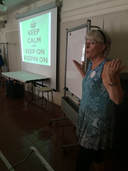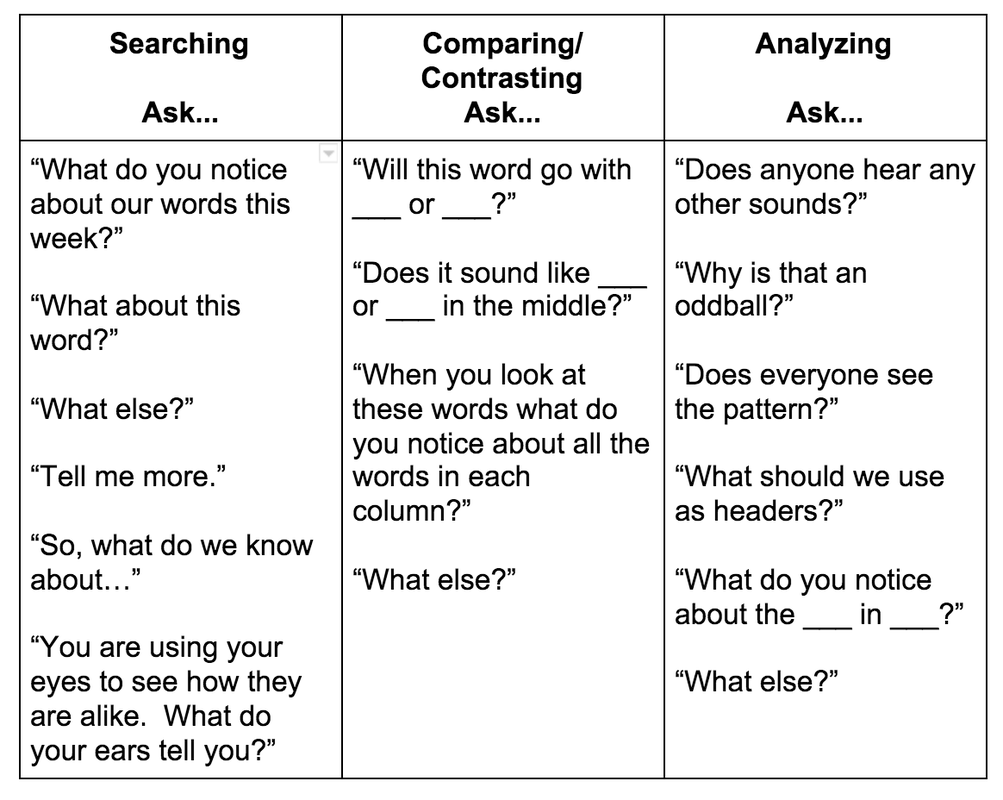
Let me back track...
As a literacy coach, I have the pleasure of working with scores of teachers, often as a support person to help them navigate the interwoven processes of professional learning and subsequent planning, implementing, and reflecting on instructional practices. To be that support person is a responsibility that weighs heavily on me. When folks are looking at you as the "expert", you'd better know your business!
But, sometimes, I don't have all of the answers. I have now been out of the classroom for 5 years. Often, I am asking teachers to reconsider their instruction to include the best practices that research has to offer whenI have not personally used the practices myself.
In those situations, I have to 1) Create a sense of confidence for myself regarding the validity of the instructional advice I'm giving, and 2) Force myself to go find a classroom and get in there to try whatever practices I am suggesting to teachers.
Putting my money where my mouth is!
Last week, I was in a building doing professional development on Word Study. Long, long story short, I have found myself wondering if one of the reasons we are not seeing the developmental progress in students' word knowledge that Word Study research promises is that we have misplaced a key component - deep and active exploration and use of critical thinking skills as students interact with the patterns, sounds, and meanings of words each week.
Many, many classroom teachers find the time for Word Study (and, woe is me, writing!) instruction shrinking. As a result, the introduction of word sorts each week oftentimes is a quick "go-over", where the teacher sets out the headers, models the sorting of a word for each category, gives the students time to sort the rest of the words according to the features just explained by the teacher. And that's it. Oh, and she has about 3-5 minutes per group to get all of that done before the next scheduled subject must begin. She does the best job possible in the amount of time she has available.
There is simply not enough time.
So, I have been talking to teachers about ways to maximize the 30-minute Word Study/Writing block on Mondays to devote 10 conversation-rich minutes per small group (3 total groups, max!) to give students enough time to dig into the features. My thinking is that if we put the new words in front of students without headers and facilitate their exploration with probing questions (open-ended, comparing/contrasting, searching, analytical) long enough for them to use their own critical-thinking skills that they will begin to internalize the learning and stop simply memorizing for assessments.
This is how Word Study is supposed to work. I am simply trying to re-focus our attention on the critical importance of active student participation in the discovery and categorizing of words - which requires time.
So, I created a card with the probing questions listed by thinking categories (searching, comparing/contrasting, analyzing) and gave it to the teachers. (See below) I asked them to consider trying this with their small group introductions on Mondays. And I asked them for feedback.
And then I realized it was time to "put my money where my mouth was". I couldn't ask teachers to implement an instructional practice without having some professional experience with it myself! I will be heading out to a school this week to do just that! We will all jump into this practice together, even though we may not be 100% confident. Even if we don't have all of the answers. For the sake of our students, sometimes we must force ourselves out on that limb that feels a little shaky. We have to step out of our comfort zone or our "we've always done it this way" safe spot, and try something different that may give our students a better outcome.
Personally, I crept out on that branch yesterday when I went to that writers' conference and met with two agents to talk about some writing projects that are the heart of who I am as a teacher and a writer. I had to pretend to be confident, because I felt like an imposter. I had to put my work into the hands of professionals and be prepared for their critiques. It was gut-wrenching. (Not their critiques, thank goodness!)
And it was the most rewarding thing I have done for myself professionally in a long, long time.
I "put my money where my mouth was". I acted on my words. I tried to "show, not tell".
We all need to remember that life-long learning involves risk and that sometimes you just have to go for it. We ask our students to do this all the time. I think it's a great thing to "put your money where your mouth is" every once in a while. It's how you earn credibility.
It's also how you grow.
#allkidscanwrite

 RSS Feed
RSS Feed
